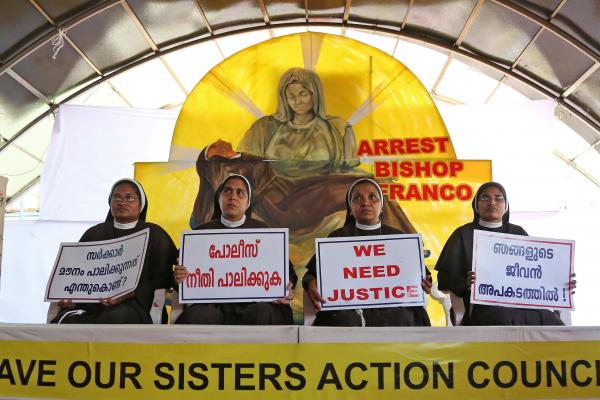Oct 11, 2018
Sister Anupama, who led the protests in Kochi, said that the survivor approached the superior general in early 2017 with concerns about harassment — she was facing disciplinary action because of her resistance to “lie down with” the Bishop. Her concerns were ignored. In June 2017, before reaching out to church officials in northern India and the Vatican, she first revealed to a parish priest and bishop in Kerala that she had been abused by Mulakkal. The complaint then reached the Cardinal Mar George Alencherry, the head of the Syro-Malabar church, but no action was taken.
Read the Full Article

Already a subscriber? Login
